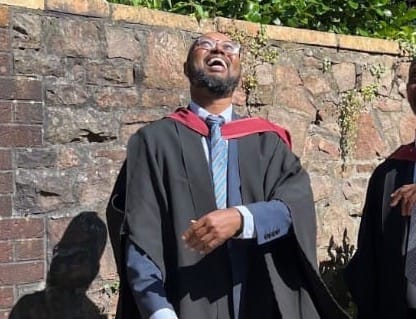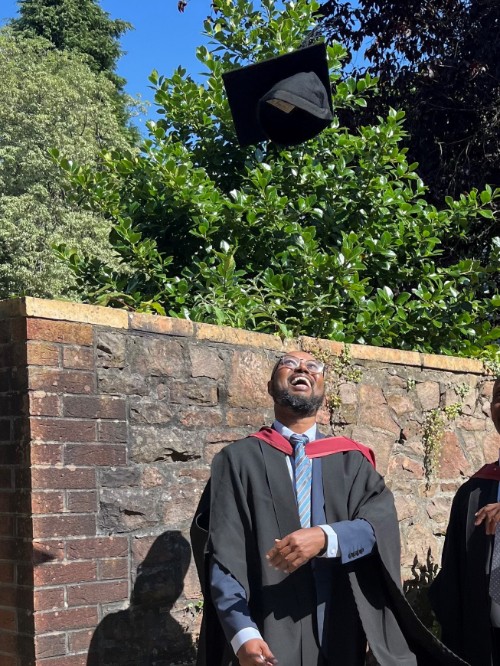‘Nothing is impossible,’ says Somali Refugee Who Balanced Studies with Uber Driving to Honor Late Brother and Fulfill Graduation Dream

By Jill Dando News
When Abdullahi Abdi threw his mortarboard in the air upon graduating, he felt immense pride.
It was the culmination of years of hard work, made even more meaningful as he remembered his late brother, the first in their family to attend university, who tragically passed away after his own graduation in a terrorist attack in Somalia.

Now 46, Abdullahi graduated last summer with a 2:1 in Social Policy from the University of Bristol.
He will share his story at the launch of a report highlighting the challenges and opportunities for people from refugee backgrounds in higher education.
“If you think it’s impossible, I’m proof nothing is impossible,” Abdullahi said. “My family is incredibly proud, and my brother would have been thrilled—he really encouraged me. No matter the obstacles, there’s always a way, and support is available.”
Abdullahi returned to study during the COVID-19 pandemic, over 15 years after arriving in the UK to join his wife in London. He had taken various jobs in warehouses, social care, and transport while supporting his family.
“During the pandemic, I worked as a support worker and part-time Uber driver to support both my family and my late brother’s family back home. A friend told me about a Foundation programme for people like me who hadn’t studied in years, so I seized the opportunity.”
The Foundation in Arts and Social Sciences is a one-year introductory course for mature students without formal qualifications, offering essential skills for undergraduate study.
Abdullahi chose social policy due to his experience in care work. Despite the challenges of full-time study and family responsibilities, his tutors and wife supported him through tough times.
“It was an amazing feeling to finish, and a fitting tribute to my brother, whose potential was cut short,” he said.
The report, based on interviews with 38 participants, highlights the challenges refugees face accessing higher education, from limited qualifications to lack of language support and financial struggles. Despite these challenges, participants cited the benefits of education, including financial stability, career opportunities, and social inclusion.
Co-lead author Professor Corinne Squire, Chair in Global Inequalities at the University of Bristol, said, “Abdullahi’s story is an inspiration to those who think obstacles are insurmountable. Many successful students come from refugee backgrounds, and Abdullahi’s achievement bears testimony to that.”
Abdullahi, who tutored others from refugee backgrounds during his degree, has now applied for a Master’s in Public Policy but is facing funding issues.
“I’ve deferred my place for financial reasons. Life continues, and education isn’t easy, but I’m positive about the future,” he said.
The report calls for better financial support, improved recognition of qualifications, and expanded outreach to refugee communities to improve higher education access.
Professor Palie Smart of the University of Bristol added, “Abdullahi’s story highlights the adversity faced by many students from refugee backgrounds. It's crucial to celebrate their achievements and work together to overcome obstacles, ensuring universities are places of equal opportunity for all.”





